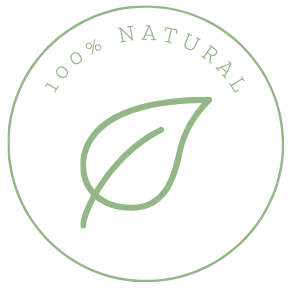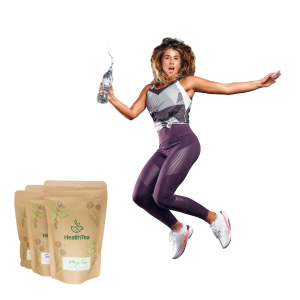Passionflower Tincture
€14.95
 .
. 

Out of stock
Ingredients:
Passiflora incarnata - Passion Flower
Fresh organic whole herb tincture - 1:3 25% Made using Organic herbs, Spring water & Medical Grade alcohol
Method:
Shake well. 2-3 ml (half dropper) 1 - 3 times a day. Best under the tongue and held for 30 secs. Alternatively Can also be added to water or juice. For best effect use regularly.
Benefits
Anxiety/Depression
If depression is related to the menopause then Passion Flower could be the most effective herb. As well as alleviating symptoms such as hot flashes and night sweats (which are in themselves depressing enough), the alkaloids "chrysin" and "benzoflavone" present in this herb have been found to increase GABA (gamma amino-butyric acid) in the brain. GABA is one of the inhibitory neurotransmitters, used by the brain to prevent over-excitement and attain balance. It also helps to decrease the activity of depression inducing brain cells.
Insomnia
Passion Flower is a gentle anti-anxiety and mildly sedative herb that can even be used to induce a good night's sleep in children. One particular study asked volunteers with trouble sleeping to drink a cup of Passion Flower tea at bedtime for a period of time, all reported significant sleep improvement.
The increased GABA in the brain that Passion Flower can induce will also reduce the anxiety so often associated with insomnia. In addition, Passion Flower is known to be a muscle relaxant, easing away tension that can make it more difficult to drift off to sleep.
Antioxidant/Anti-inflammatory
Passion Flower is powerfully antioxidant due to the presence of the antioxidant compounds; vitexin, isovitexin, kaempferol, quercetin, rutin, apigenin and luteolin glycosides. It also contains indole alkaloids, fatty acids, gum, maltol, phytosterols, sugars and traces of volatile oils. One compound in particular – quercetin – has been extensively studied, it has been found to be exceptionally effective in ridding the body of damaging free radical molecules and it inhibits various enzymes that cause inflammation.
These compounds also relax the nervous system, helping to relieve nerve related pain such as back pain.
Lowers Blood Pressure
Studies show that using extract of Passion Flower can help to reduce high blood pressure (hypertension). It was found that one cup of Passion Flower tea daily can help to regulate blood pressure levels in people with mild hypertension. However, it is important to note that those on blood pressure medication should not consume this herb as it can lower blood pressure to dangerous levels.
Tinctures are a convenient way to deliver the healing power of herbs quickly and easily. A tincture is a liquid preparation made by steeping a herb for several weeks in a blend of alcohol and water. Through this process the alcohol extracts chemicals from the plant material that water alone cannot, creating a concentrated herbal extract. The alcohol also acts as a preservative, giving the solution a long shelf life. The solution is then strained to remove debris and the liquid extract is bottled for consumption.
Tincture Strength Ratios and Alcohol Content
The strength of the tincture is usually stated on the label in the form of an extraction ratio, for example, 1:3. This means they have used one part herb for every three parts liquid. In other words, one kilogram of herb was steeped in three litres of solution.
Because the solution is typically made of a mix of water and alcohol, the percentage of alcohol used is also presented on the labels. For example, 45% volume means 45% alcohol, 55% water.
What Percentage of Herb is in a Tincture?
We often get asked how much percentage of a herb is in a tincture. And while it may seem like a straightforward question, it doesn’t have a straightforward answer.
Some variants to consider include:
the length of steeping process
each herb reacts differently in the alcohol and water solution according to its intrinsic chemical makeup
the final preparation is a concentrated extract of the herb, which can include varying amounts of dregs of the actual herb
It is therefore impossible to gage how much of the actual herb is present in the final preparation without proper laboratory testing. We do not have the capacity to test each batch of every tincture we get and rely on the ratios and alcohol percentages that are given by our suppliers to communicate as much information about the tinctures as possible to our customers.
How to Take a Tincture
Our tinctures come with a pipette or dropper, which when full, measures at 1ml or about 20 drops.
Because tinctures are concentrated, you only need to take a small amount. And while we always recommend you speak to a medical or herbal practitioner for advice on how much to take for varying conditions, the suggested use we state on our labels is usually between 2ml to 3ml up to three times a day.
Being in liquid form, the chemical constituents of the herb enter your bloodstream rapidly. Tinctures can be taken in a little water or juice. For children or those who wish to avoid alcohol, add tincture to boiling water and leave for ten minutes, which allows most of the alcohol to evaporate.
If you have any doubts about how to take tinctures or whether you should be using them, please consult a registered medical herbalist

We aim to process All orders within 24 hours on working days. Please allow Approximately 2-3 day delivery.
Additional information
| Weight | 1 kg |
|---|






Reviews
There are no reviews yet.